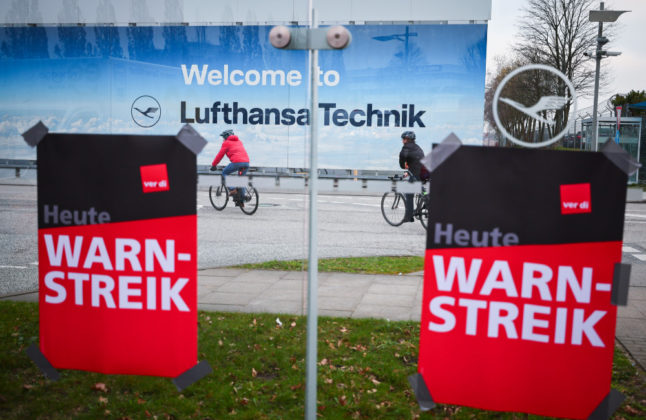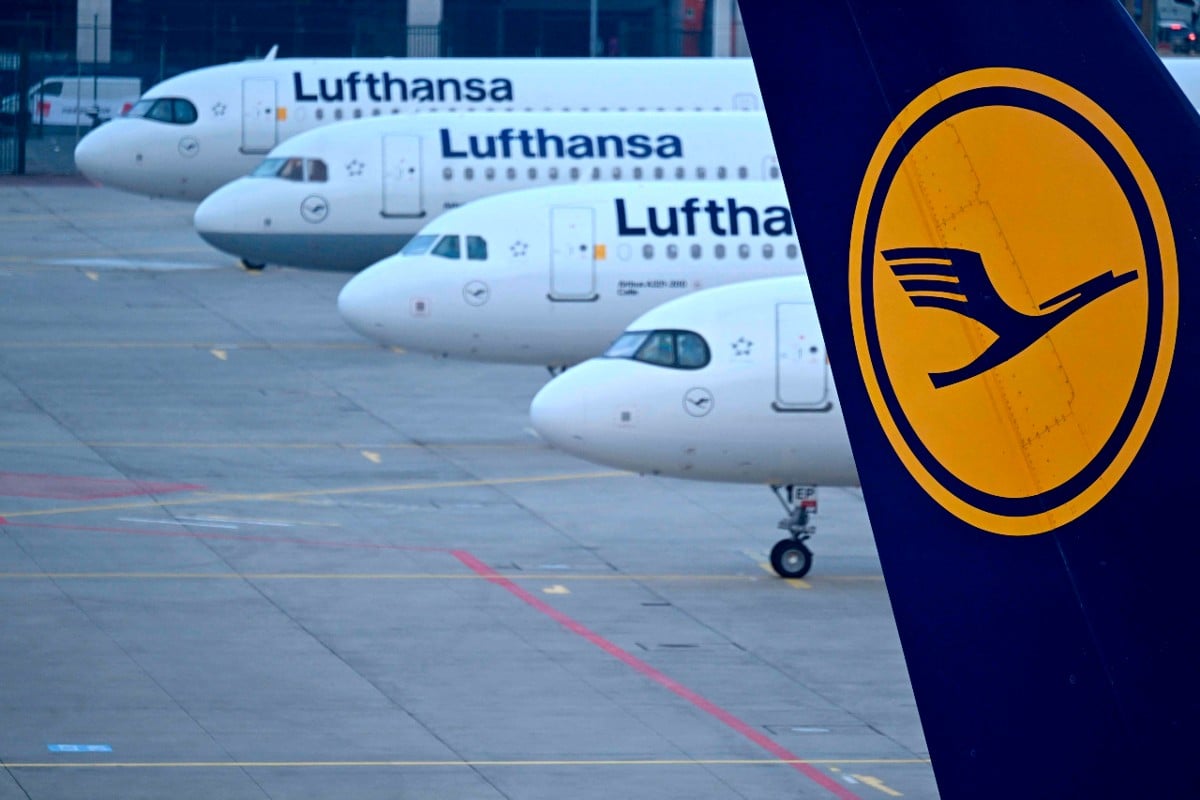“The German Train Drivers’ Union (GDL) and Deutsche Bahn have reached a wage agreement,” GDL said in a statement.
Further details will be announced in a press conference on Tuesday, the union said. A spokesman for Deutsche Bahn also confirmed that an agreement had been reached.
Train drivers have walked out six times since November, causing disruption for huge numbers of passengers.
The strikes have often lasted for several days and have also caused disruption to freight traffic, with the most recent walkout in mid-March.
In late January, rail traffic was paralysed for five days on the national network in one of the longest strikes in Deutsche Bahn’s history.
READ ALSO: Why are German train drivers launching more strike action?
Europe’s largest economy has faced industrial action for months as workers and management across multiple sectors wrestle over terms amid high inflation and weak business activity.
The strikes have exacerbated an already gloomy economic picture, with the German economy shrinking 0.3 percent across the whole of last year.
What we know about the new offer so far
Through the new agreement, there will be optional reduction of a work week to 36 hours at the start of 2027, 35.5 hours from 2028 and then 35 hours from 2029. For the last three stages, employees must notify their employer themselves if they wish to take advantage of the reduction steps.
However, they can also opt to work the same or more hours – up to 40 hours per week are possible in under the new “optional model”.
“One thing is clear: if you work more, you get more money,” said Deutsche Bahn spokesperson Martin Seiler. Accordingly, employees will receive 2.7 percent more pay for each additional or unchanged working hour.
According to Deutsche Bahn, other parts of the agreement included a pay increase of €420 per month in two stages, a tax and duty-free inflation adjustment bonus of €2,850 and a term of 26 months.
Growing pressure
Last year’s walkouts cost Deutsche Bahn some €200 million, according to estimates by the operator, which overall recorded a net loss for 2023 of €2.35 billion.
Germany has historically been among the countries in Europe where workers went on strike the least.
But since the end of 2022, the country has seen growing labour unrest, while real wages have fallen by four percent since the start of the war in Ukraine.
German airline Lufthansa is also locked in wage disputes with ground staff and cabin crew.
Several strikes have severely disrupted the group’s business in recent weeks and will weigh on first-quarter results, according to the group’s management.
Airport security staff have also staged several walkouts since January.
Some politicians have called for Germany to put in place rules to restrict critical infrastructure like rail transport from industrial action.
But Chancellor Olaf Scholz has rejected the calls, arguing that “the right to strike is written in the constitution… and that is a democratic right for which unions and workers have fought”.
The strikes have piled growing pressure on the coalition government between Scholz’s Social Democrats, the Greens and the pro-business FDP, which has scored dismally in recent opinion polls.
The far-right AfD has been enjoying a boost in popularity amid the unrest with elections in three key former East German states due to take place later this year.




 Please whitelist us to continue reading.
Please whitelist us to continue reading.
Member comments